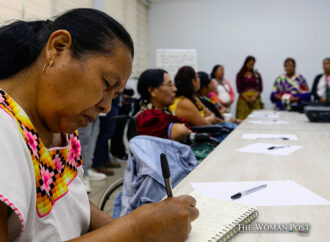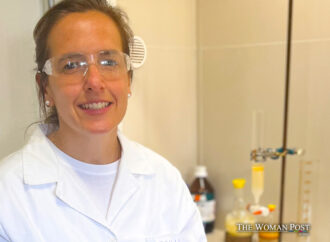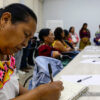In Latin America, less than 30% of girls under 17 years old have received it. A solution that can prevent cervical cancer, which claims the lives of 7 women every day.
Cervical cancer is the second most common cancer in women worldwide. According to Globocan, nearly 300,000 deaths were reported in 2020, with 570,000 new cases diagnosed. In Latin America, seven women die daily from this disease.
95% of cervical cancer cases are caused by human papillomavirus (HPV), a common infection estimated to affect 90% of individuals (four out of five) at some point in their lives.
In Colombia alone, approximately 2,500 women between the ages of 35 and 50 die each year due to HPV, and around 4,700 new cases of cervical cancer are reported. Of these, 50% die from the disease. A similar trend is observed in the region.
Read more content like this at: thewomanpost.com
Vaccine-Reduced Risks
"The Human Papillomavirus (HPV) is a group of over 150 viruses transmitted by men through sexual relations. In some cases, they can cause genital warts, while others can develop cervical, oropharyngeal, vulvar, vaginal, penile, or anal cancer," explained Dr. Carlos Castro, an oncologist and scientific advisor for the Colombian League Against Cancer.
Therefore, the expert highlighted the importance of vaccination: "It is the key to prevent the increasing numbers of HPV infections, as vaccination reduces the chances of transmission by 90% to 95%. Additionally, we must dispel myths about the vaccine since, according to the WHO, it is one of the safest vaccines, it is effective, and it does not cause autoimmune diseases," he added.
The Call from PAHO
Similarly, the Pan American Health Organization (PAHO) recommends that all women between 21 and 65 years old be screened for cervical cancer by their healthcare providers at least once, even if they have been vaccinated against HPV. These tests can detect precancerous changes in the cervix early on, which can be treated to prevent the development of cervical cancer. HPV and DNA tests should be added to cytology for timely diagnosis that saves lives.
The organization reminded that three vaccines, endorsed by the World Health Organization (WHO), are available in most countries in the region to protect against the most dangerous types of HPV, providing strong and long-lasting immunity. High coverage in girls (80%) significantly reduces the risk of infection, but rates can be further increased if vaccination programs are extended to boys. It also emphasized the use of condoms throughout sexual intercourse to prevent HPV transmission, although it can still be transmitted despite their use.
You can also read Cervical Cancer, The Silent Enemy Of Women
Pedagogy is Required
In Colombia, the pharmaceutical company MSD and the Colombian League Against Cancer have joined forces in an educational campaign to promote vaccination. Despite this panorama, and the fact that the vaccine is free for girls aged 9 to 17 in the country, it is estimated that less than 30% of this population has been vaccinated.
Therefore, the expert calls on the population to help combat these figures: "In Colombia, we have the tools to reduce the alarming HPV figures, such as free vaccination for girls and paid vaccination for women over 18 up to 45, as well as for men and boys aged 9 to 26, which prevents cancer, and if detected early, it can be completely cured," explained Dr. Castro.
Pedagogy must be added to vaccination campaigns: "It is important to have comprehensive and responsible sexual education to prevent the further increase of this disease," mentioned Dr. Castro.

























Leave a Comment
Your email address will not be published. Required fields are marked with *